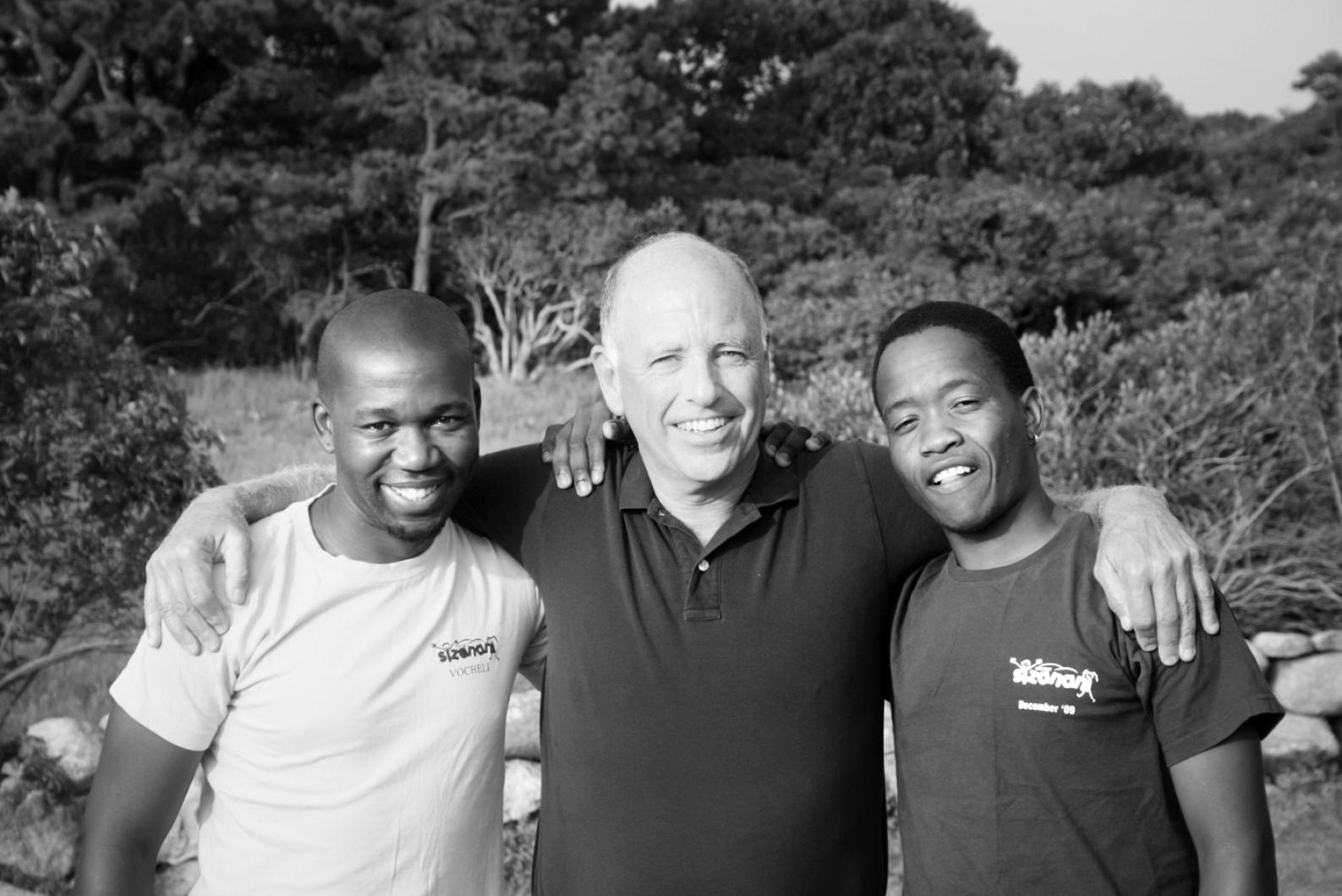The feeling of not wanting summer camp to end is familiar to many — and at Camp Sizanani, even the counselors want it to last forever. Founded in 2003 by Philip Lilienthal, a seasonal resident of Menemsha, the camp’s aim is to educate HIV-at-risk kids, either those who have it or have been affected by it, in Soweto, South Africa.
Mr. Lilienthal comes from a life spent in summer camps. His father operated Camp Winnebago in Maine, and during time volunteering with the Peace Corps from 1965 to 1967, Mr. Lilienthal founded the first residential summer camps in Ethiopia. “The impact was so much greater than running camps here, which I’ve done and loved,” he said of running his first camp in Ethiopia.
Since its founding in January 2004, Camp Sizanani has had 38 sessions for 4,400 kids. And while campers are only allowed to attend for one session, they can attend Kids’ Clubs every other Saturday in Soweto to continue the work begun at camp.
“The point of it is so that the kids don’t get this peak experience and then go back into the woodwork,” Mr. Lilienthal said. “[Kids’ Clubs] provide support . . . friendship . . . relationships with people who have been through the camp experience.” Both the camp and the Kids’ Clubs are free; the programs are funded through donations.
The camp includes life skills courses meant to educate campers about HIV prevention and management. Everything from safe sex to nutrition is covered. But it wouldn’t be camp without some fun and games, and Camp Sizanani delivers on both. Campers participate in sports, theatre, swimming, dancing and storytelling. Like a mother hiding vegetables in her children’s meals, the camp hides lessons even in the fun activities. “If we want kids to be self-confident, self-reliant, cooperative, caring about others, all these human skills that go along with being able to say no to unsafe sex, or to drugs or to alcohol, we want them to have that self-confidence. Well, we develop it in other areas also,” Mr. Lilienthal said.
Camp Sizanani has no permanent home; space is rented for the three sessions a year that the camp operates. Mr. Lilienthal hopes to change that. “I think it’s critical to do to make us a player on the global stage,” he said of his quest to find a permanent site for the camp. “I don’t think we get the standing that we should get because our impact is amazing.” He also has his eye on expansion and would like to hold more camps and has begun fund-raising with these goals in mind.
Kabelo Mashinini and Enos Tshabalala, two veteran Camp Sizanani counselors, visited Mr. Lilienthal late this summer at his Menemsha home. Mr. Tshabalala has not missed a camp session since he started in September 2008.
Describing the experience, Mr. Mashinini said: “The first day they arrive there with no smile. But at the end of the day and the beginning of the second day you can start to see a change . . . It changes people so quickly.”
Mr. Tshabalala agreed, noting that many of the campers arrive with low self-esteem and a track record of poor performance in school, in addition to the daunting challenges faced at home. “We build a self-confidence in them,” Mr. Tshabalala said. “Most of the kids who came to our camp, they lack self-confidence. Most of them are orphans. Some of them are young mothers.” Many are older siblings who look after their younger siblings because there is no adult to take care of them, he said, adding: “I believe that each and every kid, whenever they come back from camp, they’ve changed. You can see the change from them.”
Mr. Mashinini said: “In that fun, we put lessons.”
The fun has provided lessons for the counselors as well. Mr. Mashinini and Mr. Tshabalala, both from Johannesburg, became friends after they met at camp. “Most of my friends now are counselors. Now I have positive friends,” Mr. Tshabalala said.
“Camp is so addictive,” Mr. Mashinini added.
“It’s hard to say no,” Mr. Tshabalala said.




Comments
Comment policy »